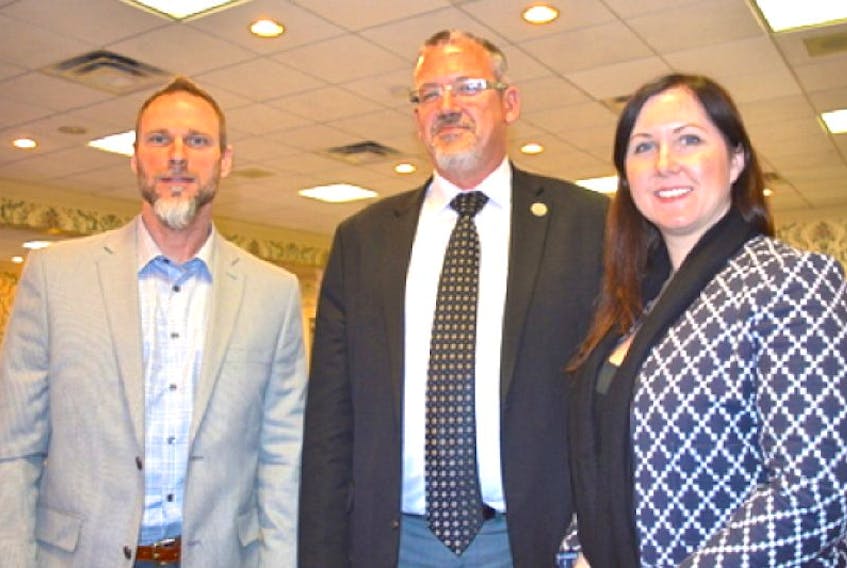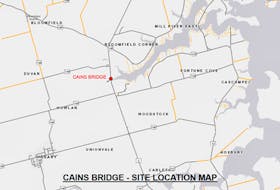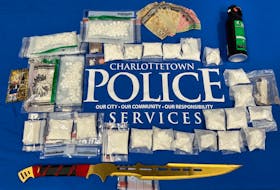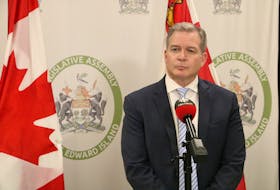Individuals and organizations that deal with families in crisis in Prince Edward Island got an overview Monday of the much-discussed hub model for dealing with high-risk cases.
Consultants with Global Network, a company with offices in Toronto and Miami, held a day-long workshop Monday to provide details about its hub model and how it will work when implemented in P.E.I. later this year.
Consultant Ken Hunter described the hub model as a type of collaborative, risk-driven intervention.
Government or community services mainly deal with families and children at risk after a crisis has already occurred.
The hub model aims to identify problems or issues before they happen and offer services to prevent situations where police might have to be called or a child taken into protection.
“We can predict risk to the point where we can get in front of it and knock on the door and offer some services,” Hunter said.
“It’s changing the way existing services work to go further upstream to provide the help before they’re mandated to do something.”
What is known as a situation table will be created, made up of representatives from key government and community groups that deal with families in crisis.
Cases will be brought to this situation table to determine the level of risk response needed for individual families and children. This will allow for better sharing of information and co-ordination of services to ensure the most effective response.
Privacy laws will be respected during these conversations, Hunter added.
Over 100 front-line workers and stakeholders participated in the workshops Monday, including Danya O’Malley of Family Violence Prevention.
She says she believes the hub model will allow more early intervention.
“We never usually take the time to go back and intervene before something happens; in fact, there isn’t even generally the structure in place in order to intervene before something bad happens,” O’Malley said.
The province is bringing this hub model to P.E.I. as a central part of its response to recommendations from a coroner’s inquest into the tragic death of four-year-old Nash Campbell at the hands of his mother in a murder-suicide in 2013.
One of the recommendations from the inquest jury called for a child advocate for P.E.I. – a call that has been echoed by many and has been hotly debated in the current sitting of the legislature.
O’Malley said she does not believe the hub model replaces the need for a child advocate in Prince Edward Island.
“I would see it almost as being more important to have a child advocate if we have this type of model because the high-risk cases will be coming to the front, and somebody who is tasked with the responsibility of certain means and rights would be essential to have at the table.”
Government’s is paying Global Networks $73,160 for its consultation work. Additional training costs have not yet been determined.
Individuals and organizations that deal with families in crisis in Prince Edward Island got an overview Monday of the much-discussed hub model for dealing with high-risk cases.
Consultants with Global Network, a company with offices in Toronto and Miami, held a day-long workshop Monday to provide details about its hub model and how it will work when implemented in P.E.I. later this year.
Consultant Ken Hunter described the hub model as a type of collaborative, risk-driven intervention.
Government or community services mainly deal with families and children at risk after a crisis has already occurred.
The hub model aims to identify problems or issues before they happen and offer services to prevent situations where police might have to be called or a child taken into protection.
“We can predict risk to the point where we can get in front of it and knock on the door and offer some services,” Hunter said.
“It’s changing the way existing services work to go further upstream to provide the help before they’re mandated to do something.”
What is known as a situation table will be created, made up of representatives from key government and community groups that deal with families in crisis.
Cases will be brought to this situation table to determine the level of risk response needed for individual families and children. This will allow for better sharing of information and co-ordination of services to ensure the most effective response.
Privacy laws will be respected during these conversations, Hunter added.
Over 100 front-line workers and stakeholders participated in the workshops Monday, including Danya O’Malley of Family Violence Prevention.
She says she believes the hub model will allow more early intervention.
“We never usually take the time to go back and intervene before something happens; in fact, there isn’t even generally the structure in place in order to intervene before something bad happens,” O’Malley said.
The province is bringing this hub model to P.E.I. as a central part of its response to recommendations from a coroner’s inquest into the tragic death of four-year-old Nash Campbell at the hands of his mother in a murder-suicide in 2013.
One of the recommendations from the inquest jury called for a child advocate for P.E.I. – a call that has been echoed by many and has been hotly debated in the current sitting of the legislature.
O’Malley said she does not believe the hub model replaces the need for a child advocate in Prince Edward Island.
“I would see it almost as being more important to have a child advocate if we have this type of model because the high-risk cases will be coming to the front, and somebody who is tasked with the responsibility of certain means and rights would be essential to have at the table.”
Government’s is paying Global Networks $73,160 for its consultation work. Additional training costs have not yet been determined.









